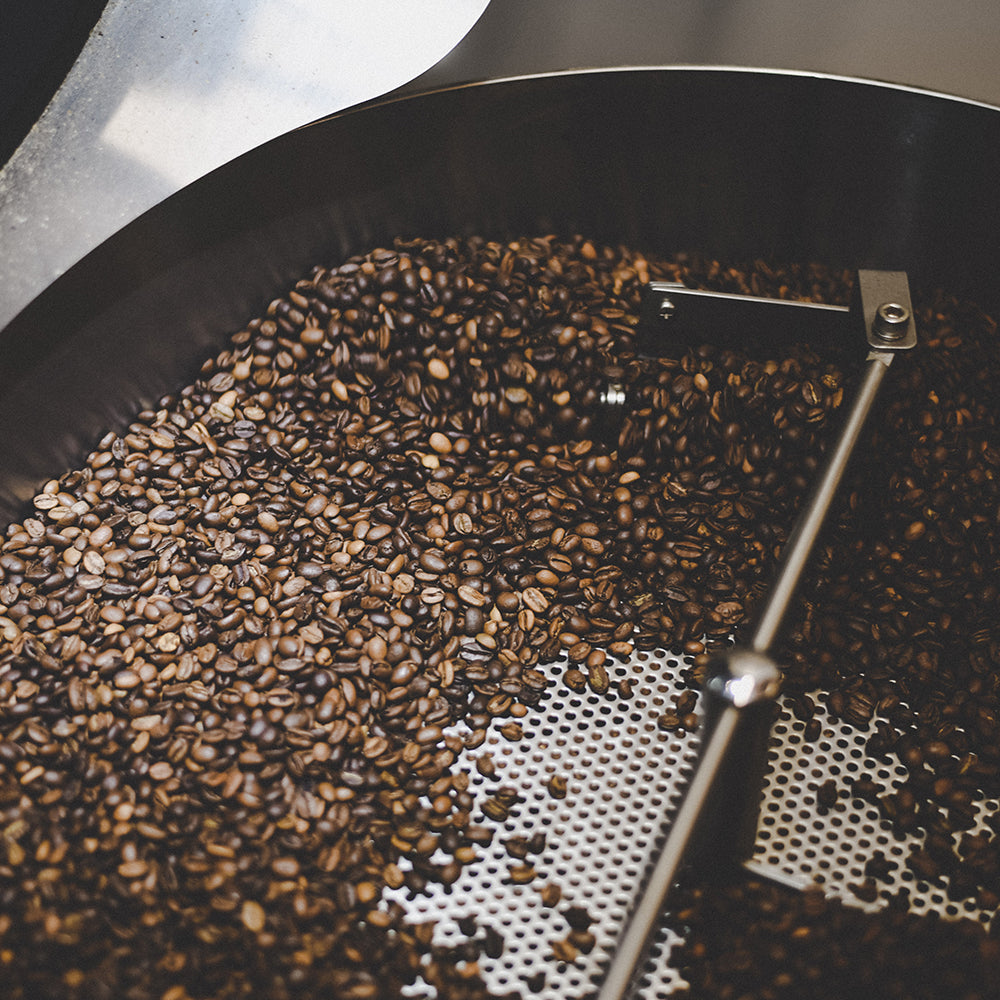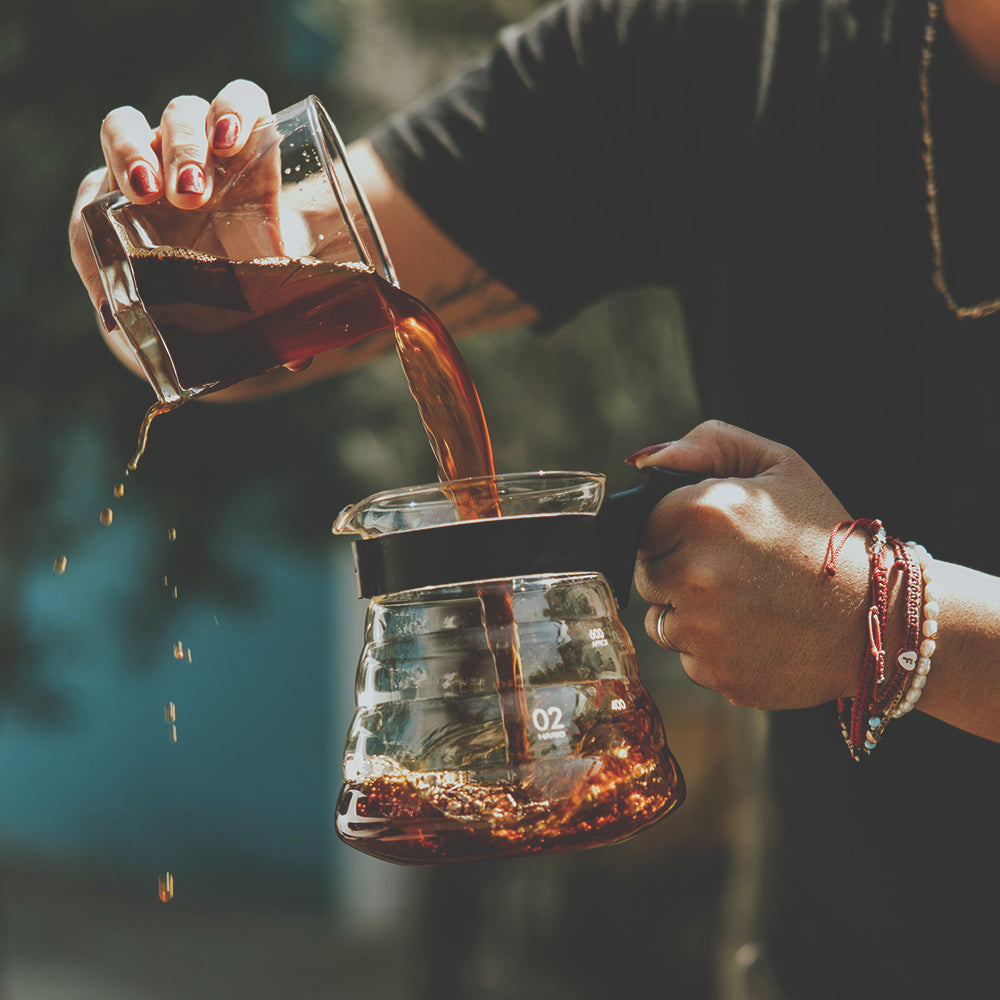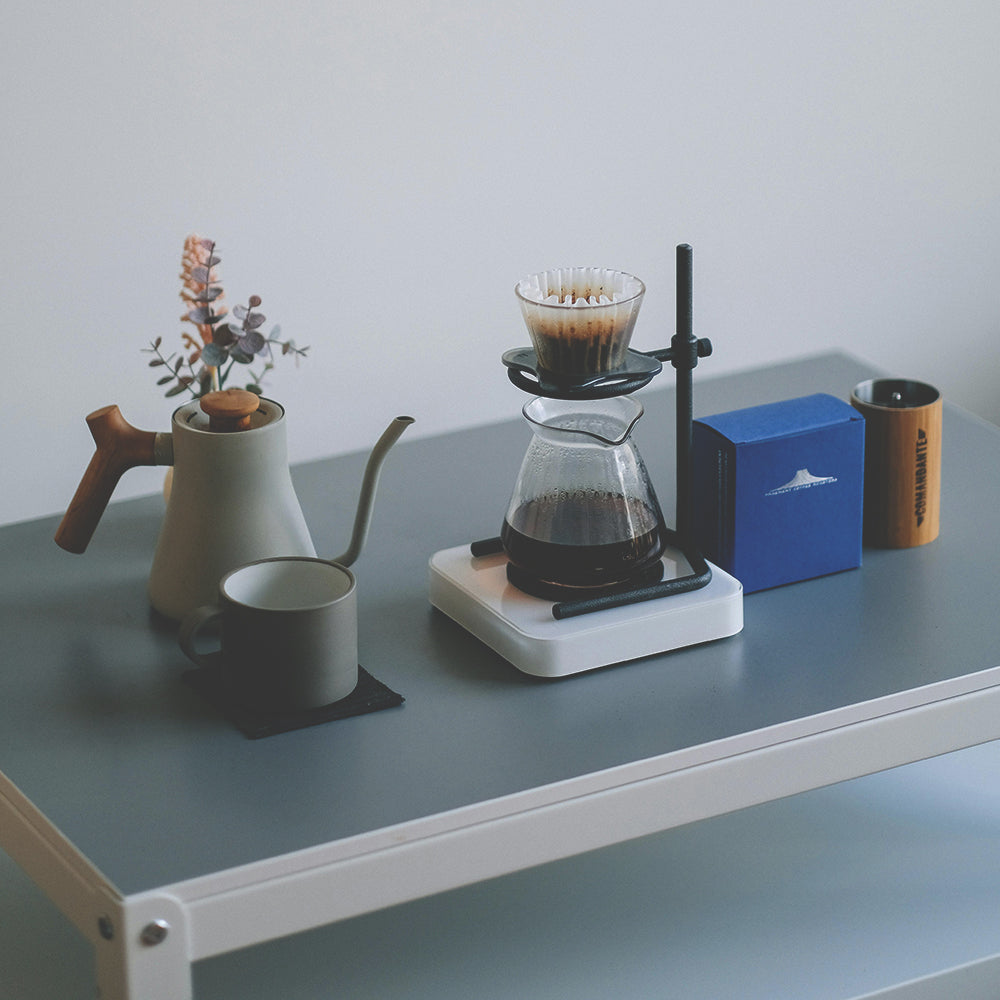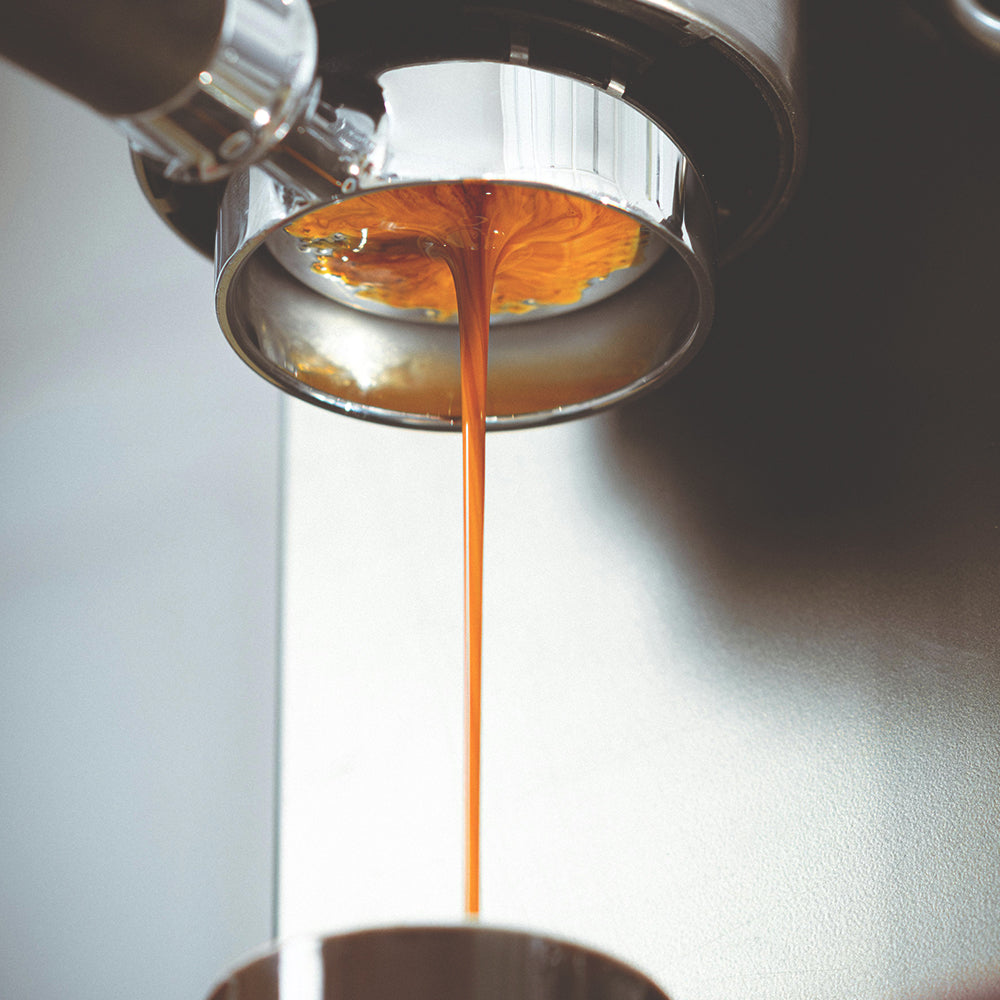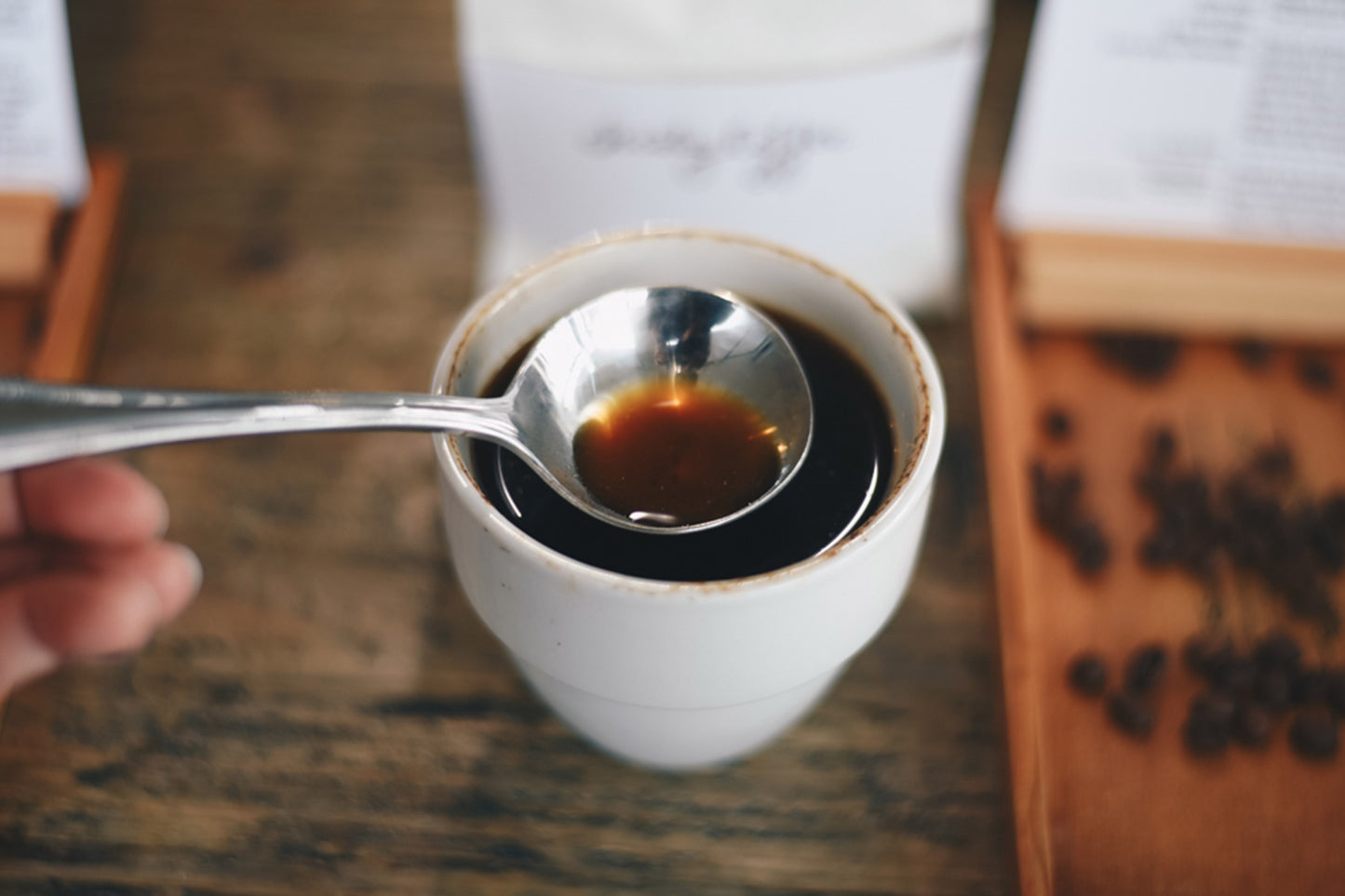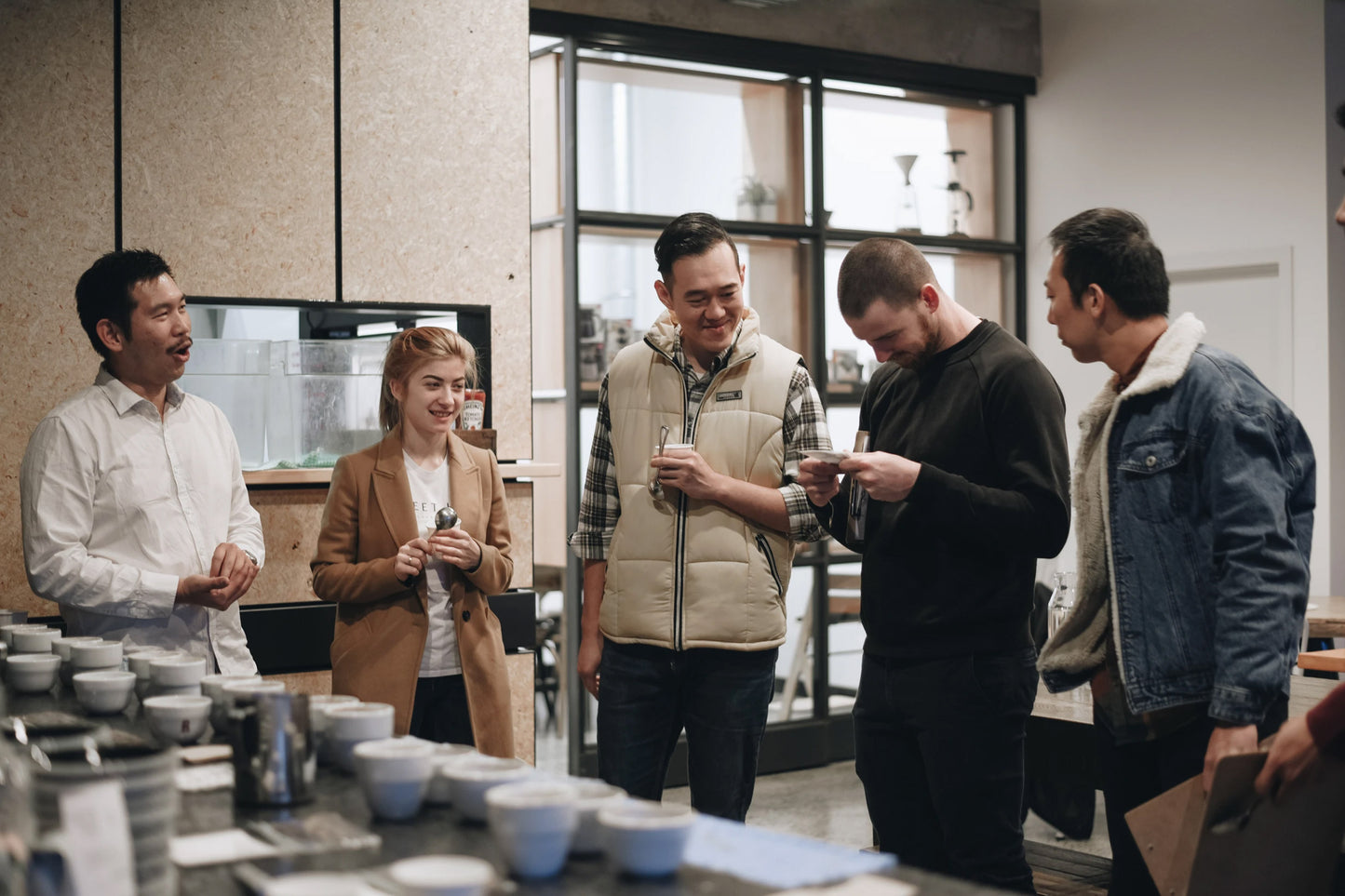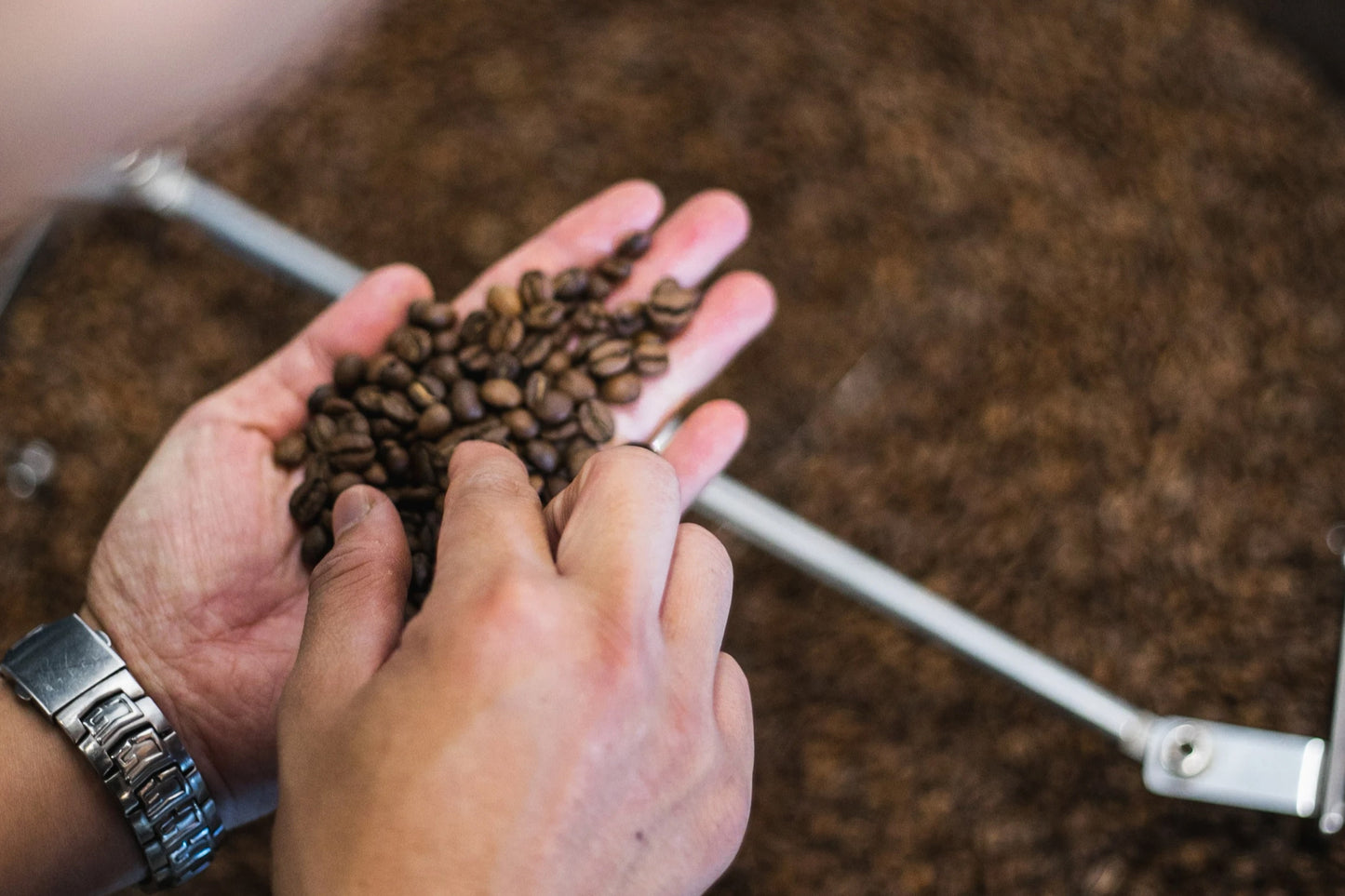
Do you ever wonder why coffee tastes so rich and flavourful? A huge part of the secret is in the roasting process! Coffee beans come from the seed of the coffee fruit and in their raw form, they have an acidic, grassy, woody taste which simply put tastes yuck. Roasting the coffee bean to a specific temperature unlocks its full potential, releasing all the unique bitter, sweet, floral, and fruity flavours and aromas.
Is roasting coffee similar to roasting nuts?
Roasting coffee and nuts do share similarities, but there are also some big differences.
Both involve exposing their raw form to heat which causes a chemical reaction, allowing the development and enhancement of flavours, colours, aromas and textures. It’s also important to control the temperature when roasting as overheating or underheating can negatively affect the quality.
As for the key differences, that would be the duration and level of control of the roasting process. Nuts usually take just a few minutes and less precise temperature control. Coffee, on the other hand, takes anywhere between 10 and 20 minutes to get that perfect roast and requires a higher level of precision and control over factors like temperature, airflow, and roast level.
What happens to the coffee beans when it is roasted? When coffee beans are roasted, they heat up and undergo a series of complex chemical changes. The bean’s structure loosens, causing them to expand and the chemical reactions break down organic acids, carbohydrates and proteins into much simpler compounds. It’s a science, but we won’t bore you too much with the technicalities. All we can say is that the process produces a delicious result transforming a relatively flavourless seed into a brown aromatic and flavorful bean.
On the coffee packaging, there is this phrase "Degree of roast" what does that mean?
The degree of roast simply refers to how long the beans were roasted and how dark they become. A dark roast means we roast the beans for a longer duration and at a higher temperature than lighter roasts. This results in darker-coloured beans with richer and more robust flavours and words like smoky, nutty or chocolatey are more often used to describe it. We often prefer dark roasts for beans with more intense flavours that can stand up to the boldness of a darker roast. This style of coffee is more suitable for pressurised brewing methods such as using an espresso machine or stovetop and is enjoyed with milk.
For light roasts, we process the beans for a shorter duration and at a lower temperature. They tend to have a brighter, more acidic flavour with subtle notes, and we usually prefer this method for beans with delicate flavours. People often enjoy this style of coffee with non-pressurised brewing methods like v60 filter or chemax. The coffee is meant to be appreciated by itself.
Can I roast coffee at home?
Yes, you certainly can roast your own coffee at home! In saying that, you might want to turn your smoke alarm at home off first.
Home coffee roasting is becoming increasingly popular among coffee enthusiasts who want to experiment with different roasts and achieve a fresh, customized coffee flavour.
Home coffee roasting can be a fun and rewarding hobby, but it does require trial and error to get the roasts you like best. Start with green coffee beans in small batches and experiment with different roasting methods to find the flavours and aromas you prefer.
If I can roast coffee at home, then why should I buy from my local coffee roaster?
While it's possible to roast coffee at home, there are still several reasons why you may want to consider buying from your local coffee roaster:
-
Quality: Coffee roasters typically source high-quality beans and can offer a range of roast profiles and flavour profiles that may be difficult to achieve at home. Additionally, they can perform quality control checks to ensure that the coffee meets their high standards.
-
Expertise: Local coffee roasters can provide expert advice and recommendations on the best beans and roast profiles for your taste preferences. They can also offer brewing tips and advice to help you make the most of your coffee at home.
-
Support local businesses: By buying from your local coffee roaster, you're supporting a small business in your community and helping to sustain the local economy.
-
Convenience: Buying from a local coffee roaster can be more convenient than roasting coffee at home, especially if you're short on time or don't have access to the necessary equipment.
Ultimately, whether you choose to roast your own coffee at home or buy from your local coffee roaster will depend on your personal preferences and priorities.
What defines one coffee roaster from another?
Coffee roasting is more than just about the beans; it's about the roasting process, equipment, and the roaster's unique style and approach, which creates individuality. At Society Coffee Roasters, here is what we believe defines us:
- Roasting style: While other roasting companies may use different roasting styles such as light, medium, or dark roast, at Society Coffee Roasters we embrace the concept of omni-roast. We roast each origin to one particular profile that will best showcase the potential of the coffee for the brewing method we recommend. "Balance", " Harmony" and "Personality” are what we pride ourselves on when crafting flavourful coffee beans.
- Bean sourcing: The origin of coffee beans can have a significant impact on their flavour and aroma, and as a result, coffee roasters may source their beans from various regions or countries. David, from Society Coffee Roasters, has a passion for fruity and funky flavours which led us to become one of the very few roasters specialising in natural processing coffee. In saying that, David can never says no to good coffee, so he does not only limit himself to natural process.
- Roasting equipment: Different roasting companies may use different types of roasting equipment, such as drum roasters, air roasters, or fluid bed roasters. At Society Coffee Roasters, we use a small hot air roaster, Ikawa Pro, to carry out all our small pre-production sample roasting. It gives us a clean-tasting profile for us to know the potential of the coffee really well. For our day-to-day roasting, we use a 5kg Yangchia Taiwanese cast-iron drum roaster. With this roaster, we are able to achieve a good balance between flavour & texture by further developing our coffee towards our ideology.
- Quality control: Some roasting companies may have more rigorous quality control measures in place to ensure consistency and quality, while others may focus more on experimentation and the creation of unique flavour profiles. Here at Society Coffee Roasters, we take a balanced approach. We taste our coffee on daily basis and we also hold bi-weekly cupping events, which are open to the public. We believe that a combination of quality control and customer feedback is the key to creating exceptional coffee that both we and our customers can be proud of.
- Marketing and branding: The branding and marketing of different roasting companies can also vary, with some emphasizing their history, heritage, or sustainability practices, while others may focus on creating a trendy or modern image. We work with local artist to create an image that is suitable for representing not only Society Coffee Roasters but reflecting the characteristic of coffee and the hard work of the coffee producers.
The next time you take a sip of your favourite coffee, take a moment to appreciate the magic of roasting and its ability to turn a small assuming green seed into a rich aromatic cup of brew that we all know and love. The final flavours that come through are not only determined by the degree of roasting but also the ideology of your local coffee roaster through their careful selection of beans and roasting process.
At Society Coffee Roasters, coffee is more than just another item on the shelf. It is a labour of love and brewed with passion. We’re determined to infuse every single cup and sip with that same fiery spirit. That way, all the progress and hard work we’re putting into making speciality coffee truly matters.
